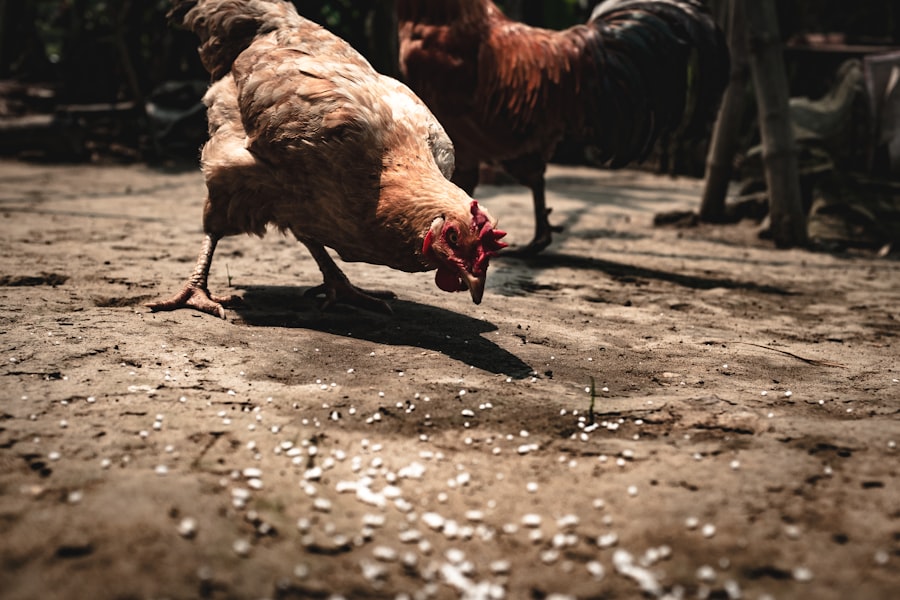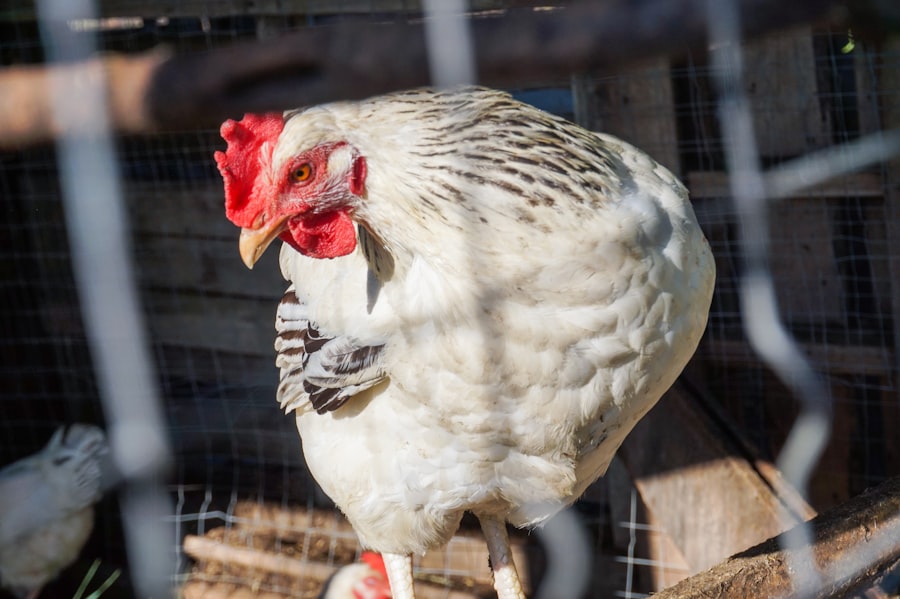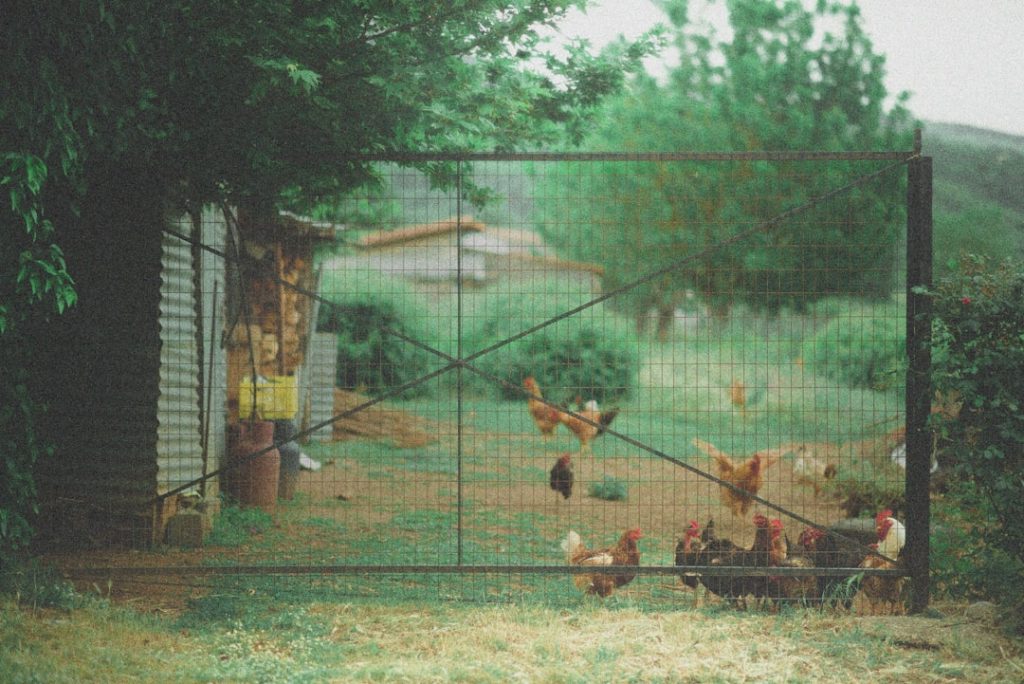Initial setup costs for a chicken farm include several key components. A suitable coop and run are essential, with options ranging from DIY structures to pre-built designs. The cost varies based on size and complexity.
Essential equipment includes feeders, waterers, nesting boxes, and perches to ensure the chickens’ comfort and well-being. The scale of the operation significantly influences these initial expenses. Acquiring the initial flock of chickens is another crucial cost.
This may involve purchasing day-old chicks or mature laying hens. Transportation fees and any additional charges should be factored into the budget. For those planning to hatch their own chicks, additional equipment such as heat lamps, brooders, and egg incubators are necessary investments.
Basic tools and supplies for daily operations and maintenance should also be considered in the initial setup costs. Careful budgeting and planning for these expenses are essential before establishing a chicken farm to ensure a successful start to the operation.
Table of Contents
- 1 Feed and Supplements
- 2 Coop and Run Maintenance
- 3 Veterinary Care
- 4 Egg Incubation and Chick Rearing
- 5 Bedding and Litter
- 6 Miscellaneous Expenses
- 7 FAQs
- 7.1 What are the basic costs of keeping chickens per year?
- 7.2 How much does it cost to purchase chickens?
- 7.3 What are the costs associated with building or buying a coop?
- 7.4 How much does chicken feed cost per year?
- 7.5 What are the expenses for chicken bedding per year?
- 7.6 What are the healthcare expenses for chickens per year?
Key Takeaways
- Initial setup costs for raising chickens include purchasing a coop, feeders, waterers, and heat lamps.
- Feed and supplements are ongoing expenses for chicken owners, including purchasing chicken feed, grit, and occasional supplements like oyster shells.
- Coop and run maintenance costs include bedding, cleaning supplies, and occasional repairs or upgrades to the coop and run.
- Veterinary care expenses may include vaccinations, deworming, and occasional visits for sick or injured chickens.
- Egg incubation and chick rearing costs include purchasing an incubator, brooder, heat lamps, and chick feed.
Feed and Supplements
Meeting Nutritional Needs
Chickens require a balanced diet to stay healthy and productive, so it’s essential to invest in high-quality feed that meets their nutritional needs. This can include a mix of commercial chicken feed, grains, and kitchen scraps to provide a well-rounded diet for your birds.
Supplementing Their Diet
Additionally, you may choose to supplement their diet with calcium, grit, and other vitamins and minerals to ensure their overall health and egg production. The cost of feed and supplements can vary depending on the size of your flock and the quality of the products you choose.
Monitoring Feed Consumption
It’s important to regularly monitor your flock’s feed consumption and adjust their diet as needed to ensure they are getting the nutrients they need. By investing in high-quality feed and supplements, you can help ensure the health and productivity of your flock for years to come.
Coop and Run Maintenance

Once you have your coop and run set up, it’s important to budget for ongoing maintenance costs to keep your facilities in good working order. This can include regular cleaning and disinfecting to prevent the spread of disease, as well as repairs and upgrades as needed. Additionally, you may need to invest in predator-proofing measures such as fencing, locks, and motion-activated lights to protect your flock from potential threats.
The cost of coop and run maintenance can vary depending on the size and condition of your facilities, as well as the local climate and environmental factors. It’s important to regularly inspect your coop and run for signs of wear and tear, and address any issues promptly to prevent larger problems down the line. By investing in regular maintenance and upkeep, you can help ensure the safety and well-being of your flock while minimizing unexpected expenses.
Veterinary Care
Just like any other animal, chickens require regular veterinary care to stay healthy and productive. This can include routine check-ups, vaccinations, and treatment for common ailments such as parasites or respiratory infections. It’s important to budget for these ongoing veterinary expenses to ensure the long-term health and well-being of your flock.
The cost of veterinary care can vary depending on the size of your flock and the specific services required. It’s important to establish a relationship with a local veterinarian who is experienced in poultry care and can provide guidance on preventative measures as well as treatment options. By investing in regular veterinary care, you can help ensure the overall health and productivity of your flock for years to come.
Egg Incubation and Chick Rearing
If you plan to hatch your own chicks on your chicken farm, it’s important to budget for the cost of egg incubation and chick rearing. This can include investing in an incubator, brooder, heat lamp, and other equipment to provide a safe and comfortable environment for your chicks to hatch and grow. Additionally, you will need to budget for the ongoing cost of feed, supplements, and veterinary care for your young birds.
The cost of egg incubation and chick rearing can vary depending on the size of your operation and the specific equipment and supplies you choose. It’s important to carefully plan and budget for these expenses to ensure the successful hatching and rearing of healthy chicks. By investing in proper equipment and care for your young birds, you can help ensure the future productivity of your flock.
Bedding and Litter

Bedding and Litter Expenses
Running a chicken farm comes with ongoing expenses, one of which is the cost of bedding and litter for your coop. This includes materials such as straw, wood shavings, or sand that provide a comfortable and clean environment for your flock.
Regular Maintenance and Replacement
In addition to the initial cost, you’ll need to invest in regular cleaning and replacement of bedding to maintain a healthy living space for your birds. This is crucial to prevent the buildup of ammonia and disease-causing bacteria.
Variability in Costs
The cost of bedding and litter can vary depending on the size of your coop and run, as well as the specific materials you choose. It’s essential to budget for these ongoing expenses and factor them into your overall operating costs to ensure the sustainability of your farm.
Monitoring and Addressing Issues
Regularly monitoring the condition of your coop bedding is vital to ensure the comfort and well-being of your flock. Address any issues promptly to prevent health problems and maintain a clean and safe environment for your birds.
Miscellaneous Expenses
In addition to the major expenses outlined above, there are several miscellaneous expenses to consider when running a chicken farm. This can include items such as lighting, heating, cooling, and ventilation systems for your coop, as well as tools and equipment for egg collection and processing. Additionally, you may need to budget for marketing and packaging materials if you plan to sell eggs or other poultry products.
The cost of miscellaneous expenses can vary depending on the scale and scope of your operation, as well as any specific goals or plans you have for your chicken farm. It’s important to carefully consider these additional expenses when planning your budget and factor them into your overall operating costs. By accounting for these miscellaneous expenses, you can help ensure the success and sustainability of your chicken farm for years to come.
If you’re considering keeping chickens, you may also be interested in learning about different types of chicken coops. Poultry Wizard has a helpful article on the Hannah Montana Chicken Coop, which provides information on the design and features of this particular coop. You can read more about it here.
FAQs
What are the basic costs of keeping chickens per year?
The basic costs of keeping chickens per year include purchasing the chickens, building or buying a coop, feed, bedding, and healthcare expenses.
How much does it cost to purchase chickens?
The cost of purchasing chickens can vary depending on the breed and age of the chickens. On average, the cost can range from $3 to $30 per chicken.
What are the costs associated with building or buying a coop?
The cost of building or buying a coop can vary depending on the size and materials used. On average, the cost can range from $200 to $1000.
How much does chicken feed cost per year?
The cost of chicken feed can vary depending on the type and quality of feed. On average, the cost can range from $20 to $30 per month, totaling around $240 to $360 per year.
What are the expenses for chicken bedding per year?
The expenses for chicken bedding can vary depending on the type of bedding used. On average, the cost can range from $50 to $100 per year.
What are the healthcare expenses for chickens per year?
The healthcare expenses for chickens can include vaccinations, deworming, and potential veterinary care. On average, the cost can range from $50 to $100 per year.
Meet Walter, the feathered-friend fanatic of Florida! Nestled in the sunshine state, Walter struts through life with his feathered companions, clucking his way to happiness. With a coop that’s fancier than a five-star hotel, he’s the Don Juan of the chicken world. When he’s not teaching his hens to do the cha-cha, you’ll find him in a heated debate with his prized rooster, Sir Clucks-a-Lot. Walter’s poultry passion is no yolk; he’s the sunny-side-up guy you never knew you needed in your flock of friends!







